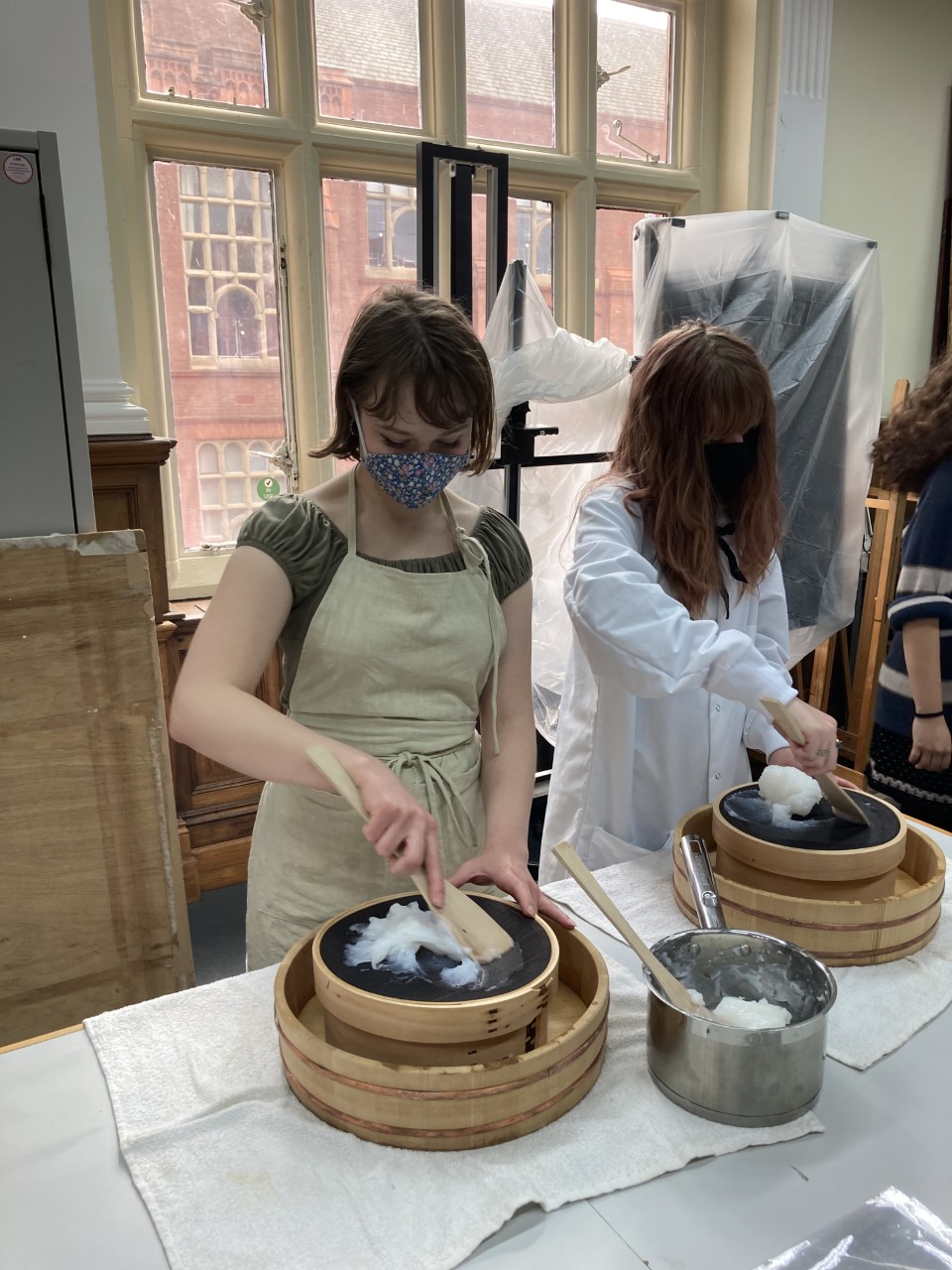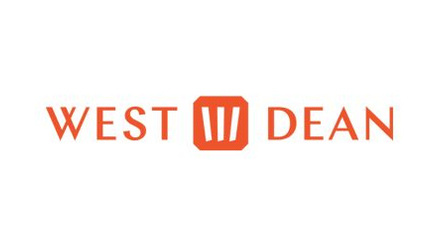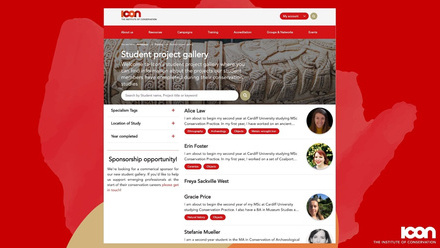Lessons and Learning post-2020: A Student Perspective
While taking meetings in slippers and having our pets for company are some novelties of which we’ve all become fond, it’s not surprising that most people I’ve spoken to who live and work in the UK are eager to put the past 18 months firmly into the archives and begin to ease into a semblance of normality once more.
As much as I too am looking forward to re-establishing a healthy work/home divide as I prepare to begin my in-person studies at Northumbria at the end of September, I also hope that the handful of positive lessons we can take away from the past 18 months are blended with pre-pandemic normality in a way that increases the accessibility and potential reach of student experiences and professional opportunities. As Student Liaison Officer for the Icon Book & Paper group until 2023, joining the committee in March of 2021, the topic of accessibility for students is something I am passionate about, and I believe that my own experiences on placement this summer might hold a valuable lesson for the future of student placements and events.

Summer Placements
It’s unnecessary to elaborate on the disruption to regular learning and studio time I experienced when beginning my master’s in fine art conservation in September 2020, as it’s something we all know to well by now. Nevertheless, as placements during summer are of course seen as a necessary addendum to the school year, we were still encouraged and supported by our tutors to pursue this summer, though understandably the health and safety limitations of this year impacted on the institutions able to host students.
I was fortunate enough to benefit from a new format of adapted learning with a conservation studio that came about due to restrictions. I was given the opportunity of a three-week placement with the Bodleian Libraries’ Conservation Team, to be held virtually. My placement supervisor Robert Minte ACR organised talks each day, each lasting up to an hour and a half. These sessions involved introductions from each team, one-to-one talks with conservators from the book, preventive and paper teams about case-studies and methodologies, introductions from the exhibition and loans team about their work, and a meeting with the head of conservation to give an overall sense of the vision and planning that goes into the management of such a vast and esteemed collection.
For the talks on current case-studies, the inclusion of a top-down camera rig allowed the teams to flick between themselves and their desk to show details of the project to enable me to follow closely what they were describing. I would like to caveat here by saying that I do not believe that virtual placements or learning can replace the inherently practical, hands-on nature of our work and the manual dexterity that needs to be honed by students during their study through real-world experience.
I was also fortunate enough to be supported by The Anna Plowden Trust/Clothworker’s COVID-19 grant and the York Consortium to accept a six-week placement with Artworks Conservation studio. Richard Hawkes ACR and Rosie Shepley both patiently guided me through a multitude of treatments and techniques which was absolutely indispensable to putting a year of online lectures and reading articles into practice.
Opportunities
One-to-one conversations
But, while the learning outcomes of few weeks spent virtually with Bodleian were somewhat different to a conventional conservation placement, they shouldn’t be underestimated in value. The insight of detailed case studies and treatment techniques, as well as the overarching workflow of a project from receiving donations down to installing them or shipping them abroad, has broadened my understanding of how each departmental cog within their institution interrelate. I was also able to have extended one-to-one conversations with members of the team, perhaps something that would not have been possible if I were in a specific studio space, provoking interesting questions and profound reflections on our role as conservators.
More flexible opportunities
If we consider the realities of undertaking a placement, there are absolute limitations that often dictate where, when, for how long or how many placements a student might be able to do. I absolutely would not have been able to do both placements in person, despite receiving financial aid from two funding bodies, as taking 9 weeks unpaid leave from my job while continuing to pay rent plus placement accommodation, would have been impossible. With many universities expecting students to organise and pay for their own placement arrangements, and indeed many studios understandably unable to pay students for their time, these limitations are here for the foreseeable future, as well as, I hope, these new potential solutions of virtual experiences.
International networking
Beyond the financial aspect, the potential for international networking now that virtual arrangements have been demonstrated as possible, is vast. A student with a specific interest might now be able to forge a connection with a studio the other side of the world. In an industry where (like most, admittedly) as much experience as possible benefits our employability, the draw of being able to secure a week or more of one-on-one meetings, case-studies, insight into project planning and a professional’s breadth of knowledge, without a logistical, geographical or financial constraint is incredibly enticing.
Putting it into practice
Online Icon Conferences
The positives of adapting our events and opportunities to become more far-reaching and open is something that we can already begin to see taking effect within Icon itself. The Icon Book & Paper conference happening 4-7th October 2021 focuses fittingly on the theme of modern constraints and conveniences in conservation. Held online, the organisers of the conference have been able to host speakers from Mexico, America, Ireland, Australia, and South Africa, to name a few, not to mention how the scope of those who are able to attend the conference will have broadened greatly too. Furthermore, we are able to include English captions for all of the talks, which are pre-recorded, making the talks accessible for those that will benefit from their inclusion in enjoying the talks in real-time, rather than relying on post-prints for clarity.
As part of my role in Icon Book & Paper Group, I’ve also tried to take this into consideration. We are currently calling for papers for the first BPG Graduate Symposium, to be held in November, for those who have graduated in the past two years to present their dissertation topics in a conference-style setting. Again, this is and will remain as an online event, is open to submissions internationally and tickets are free for all Icon members. I hope that the continuation of this event virtually in years to come will bring with it new Icon members from graduate courses around the world.
Moving forward at university
Introducing virtual enrichment also extends into my curriculum at Northumbria. Undoubtedly the most successful aspects of the modified course schedule this year was the founding and implementation of the Wednesday Lecture Series by our module tutor Dr Richard Mulholland. The series invited a host of conservators from different institutions to deliver talks to students with a Q&A at the end, which would otherwise have been logistically impossible to host if it were in person. Again, the opportunity to hear a diverse range of projects and themes was invaluable in provoking us to consider the soft skills of decision making, time management, responsibility and reflection which are so essential in executing our work to the highest standards. Incidentally, it is through one of these talks that I was able to secure my placement with Bodleian through following up with the speaker after the talk – an example of virtual networking made good.
The detriment of screen fatigue and the need for supervised practical work are very real reasons as to why virtual learning is not a sustainable substitution for being in the classroom. However, when in-person learning and networking can be supplemented by online events and opportunities, the possibilities for professional development and targeted networking become almost limitless. For students whose time in between semesters, financial strains and eagerness to take up as many opportunities as possible, the benefits of virtual experiences are undeniable.
Conclusion
Reflecting on my first year, which at the time and in many ways felt like one of stasis, even frustration, I am surprised to see how much experience I have gained and how much I have learnt, largely from the support of an exceptionally kind community of colleagues and peers. I have become assured through all my encounters that the discipline I am entering into is filled with compassionate people who are willing to share their time and support each other in ways that surpass the limitations of physical distance.
I would like to conclude by thanking The Anna Plowden Trust/Clothworker’s COVID-19 grant and the York Consortium for Conservation and Craftsmanship for their support in making mine and many other students’ in-person placements possible this summer, as well as of course my wonderful hosts at Bodleian and Artworks Conservation. I would also like to remind any current or prospective student who might have questions that they can email me directly at [email protected].
Zoe Voice
I am a second year MA student studying Conservation of Fine Art on Paper at Northumbria University, Newcastle. Since starting my course and joining B&PG as Student Liaison Officer, advocating for student empowerment and environmental sustainability within the conservation sector have become keen areas of interest. You’ll usually find me on the yoga mat, at my desk or on Instagram @zoconserves.






